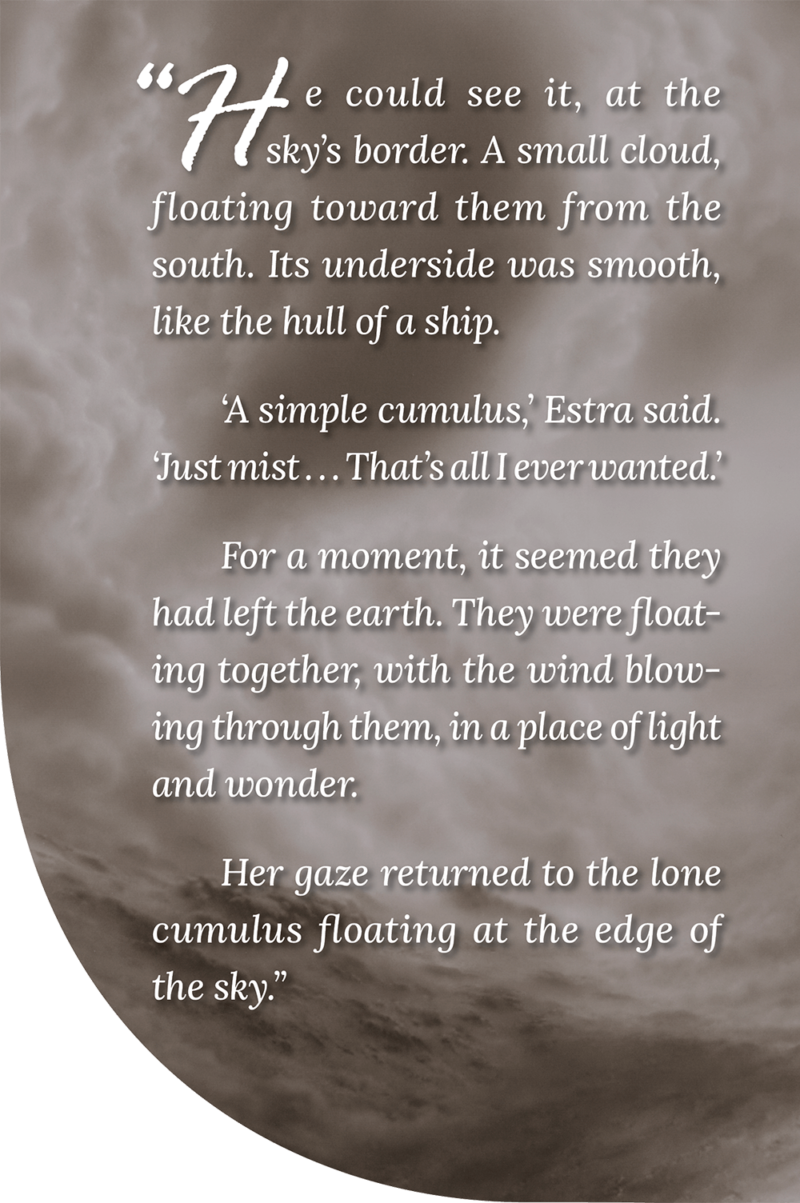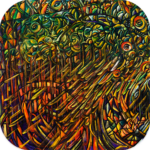
Balcony of Fog
What kind of perspective might we need to recognize, and accept, our irreconcilable desires for harmony and power?
In a storm-ravaged corner of post-nuclear America, Arden is left for dead after a brutal beating from his superior. On waking, he encounters Estra, a lost woman of mysterious origin, whom he smuggles into his cell. Desperate, and now in love, the two resolve to escape to the place from which Estra has come—the cloud realm.
Together, they ascend to the skies and make their home on a vacant cumulus, where Estra initiates Arden into the ways of the vaporous world. On the horizon looms a thunderhead, growing larger and more monstrous as it consumes the clouds in its path. The thunderhead is following them, and Estra knows and fears the man driving it.
As the hidden truths of Estra’s past emerge, Arden despairs, then—with Estra’s encouragement and guidance—determines to fight back.
Mixing the sublimity of fair-weather skies with the nightmarish violence of electric storms, Balcony of Fog illuminates the tension between the power of love and the love of power.
About Balcony of Fog
Q: Balcony of Fog begins in a post-nuclear world in which society is starkly stratified between those who have power and those who don’t. Arden is in the latter camp. He’s a “toiler.” Is this you?
RS: When I was a teenager, I worked on an assembly line at a missile factory and as a busboy in a restaurant. I left home when I was seventeen, and I was penniless. I managed to get a college education, but I entered the working world doing toiling jobs—digging ditches, running printing presses and so on. People have always struggled to improve their position in life, and they’ve always been sensitive to who is “above” them. I lived through that.
Q: The story takes us back to a tribal or primordial past.
RS: It does, although you could argue that our tribal past is so recent that it’s no reversion at all. For seven million years, going back to our pre-chimp ancestors, we lived in the wilds or in nomadic shelters. More recently, we graduated to lodges or villages. The city is a new thing.
The human mind has graduated. We can conceive of things that would be incomprehensible to our forebears. But we’re not designed to manage power effectively. Purposeful planning only happens smoothly when we shrink our numbers back to tribal size. A tribe with elders and a chief and a visionary or two can agree on change and affect a tribe’s fate. The leaders of most modern nations cannot. And the best corporations are run as dictatorships, where one person can overrule everyone else. Large numbers of people, each with a bit of power, can’t agree on anything. The expansion of mind beyond the limits of our control is, I think, the preeminent problem for our species.
I love the idea that we can see our inherited limitations mirrored in the natural world—in meteorological phenomena specifically.
The Videos
Balcony of Fog in the TooFar Media App
The multimedia version of Balcony of Fog combines Rich’s novel with illuminating videos.

Scan and download the TooFar Media App. Available on
iOS and Android.


















